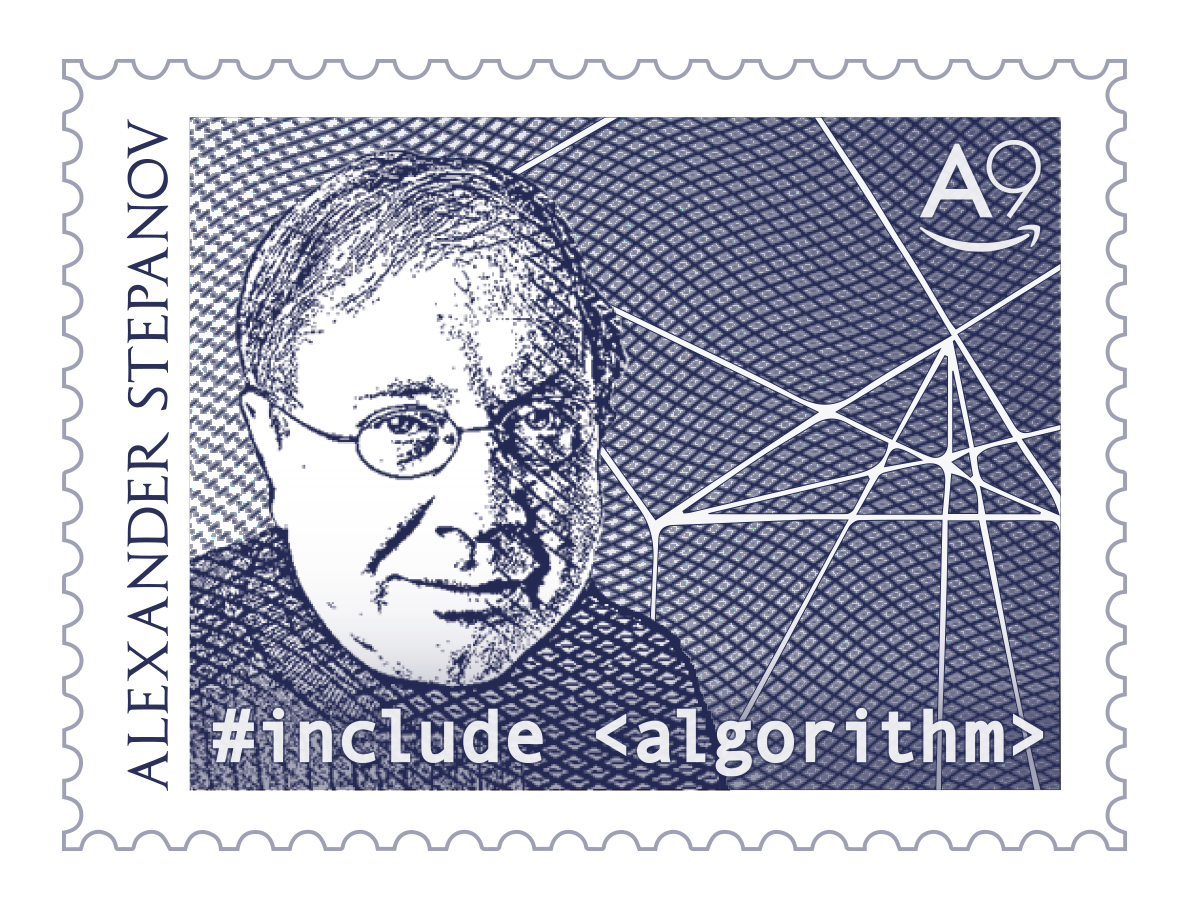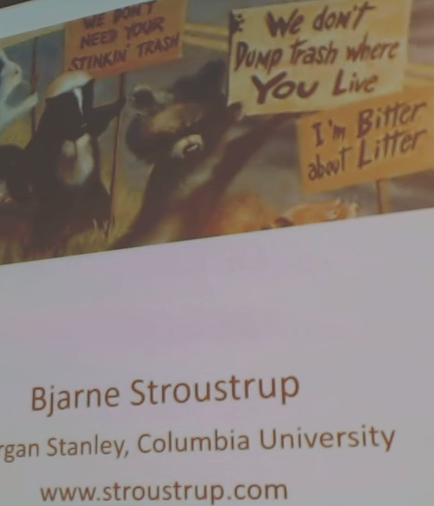Generic programming for structure-aware algorithms - Guntram Berti - Meeting C++ 2015
A new talk from Meeting C++ 2015:
Generic programming for structure-aware algorithms
by Guntram Berti
March 11-13, Online
March 16-18, Madrid, Spain
March 23-28, Croydon, London, UK
March 30, Kortrijk, Belgium
May 4-8, Aspen, CO, USA
May 4-8, Toronto, Canada
June 8 to 13, Brno, Czechia
June 17-20, Folkestone, UK
September 12-18, Aurora, CO, USA
November 6-8, Berlin, Germany
November 16-21, Búzios, Rio De Janeiro, Brazil
By Meeting C++ | Jan 22, 2016 04:02 AM | Tags: performance intermediate experimental efficiency advanced
A new talk from Meeting C++ 2015:
Generic programming for structure-aware algorithms
by Guntram Berti
By Bjarne Stroustrup | Jan 21, 2016 07:49 AM | Tags: None
Alex Stepanov retired last week. He’s one of the most prominent members of the C++ community and one of the most innovative contributors to the C++ standard. He was the father of the STL and probably the first promotor of “concepts” as we now know them. Concepts, as specified in the ISO TS, will ship as part of GCC6.0 “any day now.” His work on generic programming goes back in time through Ada (1987), Scheme (1986), and Tecton (1981). See his list of contributions (books, articles, talks, and videos): http://www.stepanovpapers.com/. Without him, we would not have had generic programming as we know it and C++ would have been a very different and poorer language.
For the mathematically oriented among us, I strongly recommend his recent books: Mathematics to Generic Programming with Daniel E. Rose and Elements of Programming with Paul McJones. He got a great sendoff from his most recent employer, A9; they even issued a special stamp in his honor:

By Meeting C++ | Jan 20, 2016 07:31 AM | Tags: iot intermediate experimental embedded advanced
A new video from Meeting C++ 2015:
Mastering the IoT with C++ and JavaScript
Günter Obiltschnig
By Henry Kleynhans | Jan 19, 2016 07:53 AM | Tags: community
Come and have fun hacking on LLVM, Clang and other projects in the LLVM ecosystem!
Clang/LLVM Sprint Weekend in New York and London
Bloomberg is hosting a sprint weekend on the 6th & 7th of February 2016 in New York and London.
Entrance is free, registration is required! Internet access, food, beverages and mentors will be provided. Bring your own laptop and C++ skills.
"Quick Start" sessions will be provided for those who are new to the project. It's a great opportunity to learn and contribute!
The sessions will run on Saturday from 10:00-22:00 and on Sunday from 10:00-17:00. There will be no access to the facilities between 22:00 on Saturday evening and 10:00 Sunday morning.
New York: https://www.eventbrite.com/e/clangllvm-sprint-hosted-by-bloomberg-registration-20770403837
London: https://www.eventbrite.com/e/clangllvm-sprint-hosted-by-bloomberg-registration-20710913901
By Meeting C++ | Jan 19, 2016 06:36 AM | Tags: intermediate experimental embedded basics advanced
A new video from Meeting C++ 2015:
Deeply Embedded C++
by John Hinke
By Mantosh Kumar | Jan 17, 2016 10:54 PM | Tags: intermediate
How to write customizable framework which would work on "practically any type". This article is continuation of author previous post: "Overload resolution".
A customizable framework
by Andrzej Krzemieński
From the article:
We want to provide a function (or a set of overloaded functions) that would ‘do the right job’ for ‘practically any type’, or for ‘as many types as possible’. As an example of such ‘job’ consider std::hash: what we want to avoid is the situation, where you want to use some type X as a key in the standard hash-map, but you are refused because std::hash does not ‘work’ for X. In order to minimize the disappointment, the Standard Library makes sure std::hash works with any reasonable built-in or standard-library type. For all the other types, that the Standard Library cannot know in advance, it offers a way to ‘customize’ std::hash so that they can be made to work with hash-maps.
By Mantosh Kumar | Jan 17, 2016 09:38 PM | Tags: c++11 advanced
How to use C++11 threads library for setting various attributes related to thread affinity/hyper-threading.
C++11 threads, affinity and hyperthreading
by Eli Bendersky
From the article:
This post is not a tutorial on C++11 threads, but it uses them as the main threading mechanism to demonstrate its points. It starts with a basic example but then quickly veers off into the specialized area of thread affinities, hardware topologies and performance implications of hyperthreading. It does as much as feasible in portable C++, clearly marking the deviations into platform-specific calls for the really specialized stuff.
By Meeting C++ | Jan 15, 2016 01:20 PM | Tags: libraries intermediate experimental boost advanced
A new video from Meeting C++ 2015:
C++ on GPUs done right?
by Peter Steinbach
The video:
By robwirving | Jan 15, 2016 08:29 AM | Tags: None
Episode 41 of CppCast the only podcast for C++ developers by C++ developers. In this episode Rob and Jason are joined by Mark Logan from Artillery to discuss his experience building a game engine in Javascript and C++!
CppCast Episode 41: Game Development with C++ and Javascript with Mark Logan
by Rob Irving and Jason Turner
About the interviewee:
Mark started learning C++ with Borland Turbo C++ in high school, so that he could build video games. After 20 years, he's finally starting to feel like he knows what he's doing. After graduating from Northeastern University's College of Computer Science, Mark spent 7 years at Google, mainly working on internal infrastructure and automation. More recently, he returned to his first love - game programming - and helped found a studio called Artillery. He's currently the tech lead on Artillery's free-to-play RTS, code-named Atlas. He spends his time working on performance optimization, networking, and solving cross-platform development problems.
By Blog Staff | Jan 14, 2016 12:43 PM | Tags: None

No Littering! (video) (slides)
by Bjarne Stroustrup